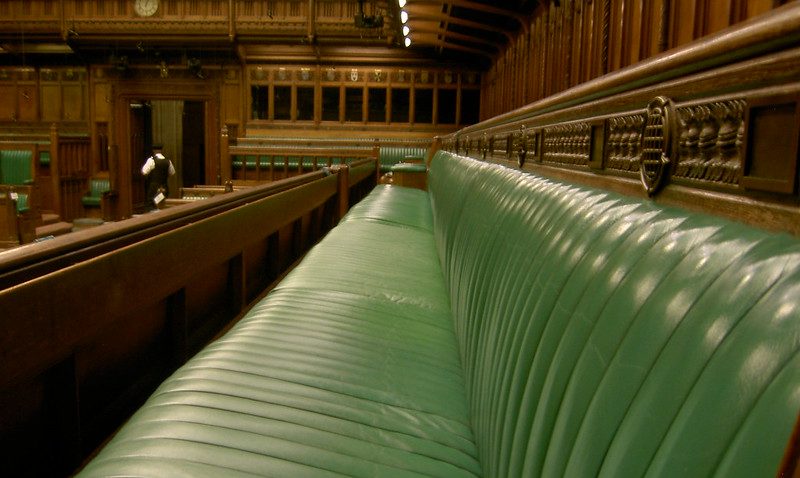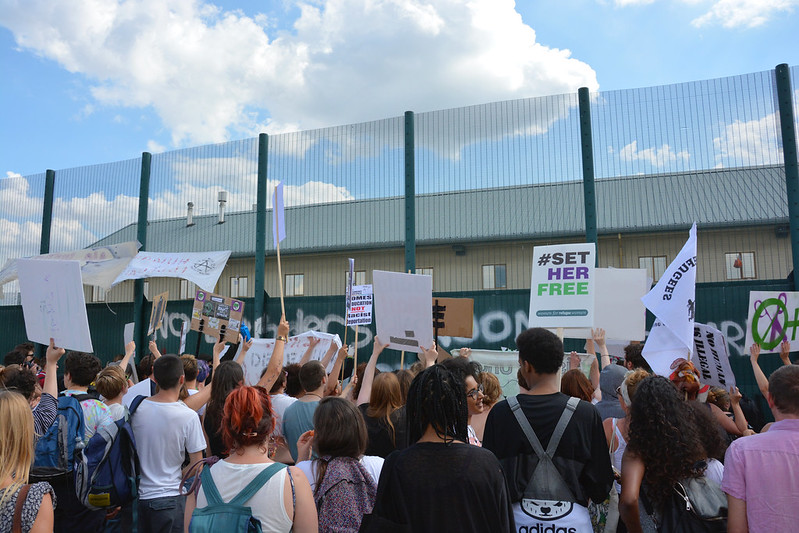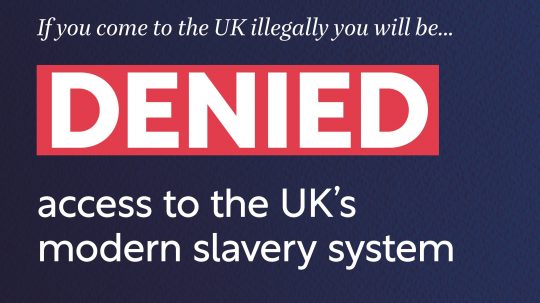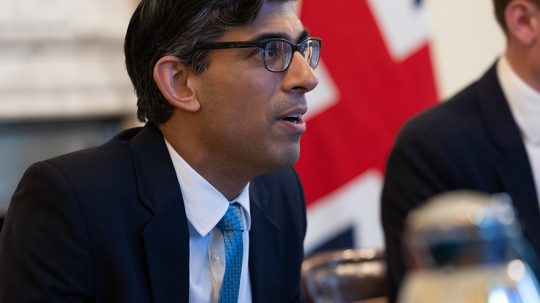On 27 March, MPs were back in parliament to debate the proposed Illegal Migration Bill. Its return to the House of Commons has reportedly split Tory MPs over the issue of its hardening stance on people arriving on small boats across the Channel.
The five-hour-long debate took place while protestors gathered outside of the House of Commons in opposition to the Bill, which would remove people arriving in small boats and place a lifetime ban on them returning to the UK.
The Illegal Migration Bill has split parliament
Home secretary Suella Braverman, who was criticised for her visit to Rwanda earlier this month, has reportedly been in discussions with Tory MPs to try and “head off a rebellion” within the party.
Labour MP for Sheffield, Hallam, Olivia Blake, has tabled an amendment to the Bill to create “safe passage” visa which would give entry to people already in Europe who are making the journey to the UK to seek asylum. The amendment has been supported by the PCS Union and Care for Calais, who campaign for the humane treatment of people seeking asylum.
Home Affairs committee member and Conservative MP for East Worthing and Shoreham, Tim Loughton, has promised to push the Home Secretary on regulations of new safe and legal routes for refugees coming to the UK.
Loughton’s actions have been backed by 13 MPs, including Conservative MP for South Swindon Sir Robert James Buckland and Conservative MP for North Dorset Simon Hoare. Both Buckland and Hoare have ‘generally voted’ for a stricter asylum system in the past but have moved to back Loughton on pushing for safe and legal routes for people coming to the UK.
Buckland, who is a former justice secretary, did however say that the government “should make no apology for wanting to make sure that [illegal migration] is addressed fair and square” when the Bill was first proposed.
Reports of Rebel groups within the Conservative party
Reportedly, the MP for Devizes, Danny Kruger, is said to be leading a rebel group of up to 60 Conservative MPs who are calling for the Illegal Migration Bill to be ‘hardened’.
Kruger has allegedly called for new measures to allow ministers to flout European legal advice, saying that the Bill should “operate notwithstanding any orders of the Strasbourg court or any other international body”, as reported by the i newspaper politics desk.
Speaking to BBC Radio 4’s Today programme, Kruger said: “We are looking for commitments from the government to take seriously the amendments we are putting down that would strengthen the Bill.”
Conservative MPs abstain on the vote
On 13 March, the Bill passed its first vote in parliament with a majority of 63 votes. While the vote was taking place, chants of “refugees are welcome here” could be heard from Parliament Square.
Former education minister and Conservative MP for Kingswood Chris Skidmore announced he would not be supporting the Bill in the Commons and abstained the initial vote.
Skidmore took to Twitter to explain why he would not be voting on the Illegal Migration Bill. He said: “I am not prepared to break international law or the human rights conventions that the UK has had a proud history of playing a leading role in establishing. I will not be voting for the bill tonight.”
I am not prepared to break international law or the human rights conventions that the UK has had a proud history of playing a leading role in establishing.
I will not be voting for the bill tonight.
— Chris Skidmore (@CSkidmoreUK) March 13, 2023
The chair of the Women and Equalities Committee, Caroline Nokes, also abstained from the first vote on 13 March. Speaking to Times Radio, Noakes said: “I am deeply troubled at the prospect of a policy which seeks to criminalise children, pregnant women, families and remove them to Rwanda. I didn’t vote for the last nationality and borders Bill, this hasn’t achieved its aim in reducing crossings. In fact, we’ve seen them increase, and I fail to see what this legislation is going to do to act as a deterrent.”
The Bill may break international human rights laws
The Illegal Migration Bill is the most recent in a long line of Bills that have been scrutinised by human rights lawyers since 2019. However, this time it is not ‘lefty lawyers’ or human rights organisations that are saying the Bill could breach international law: it is the home secretary.
Braverman has confirmed that she cannot say that the Bill is compatible with the European Convention on Human Rights but that the government intends to proceed with it.
Section 19 of the Human Rights Act 1998 requires the minister in charge of a Bill to make a statement before second reading to say the Bill is compatible with the rights contained in the European Convention on Human Rights, or that they are unable to make such a statement, but that the government wishes parliament to proceed with the Bill.
Following the second reading, the Illegal Migration Bill is now at committee stage and is due to go through a report stage and a third reading before progressing to the House of Lords.





